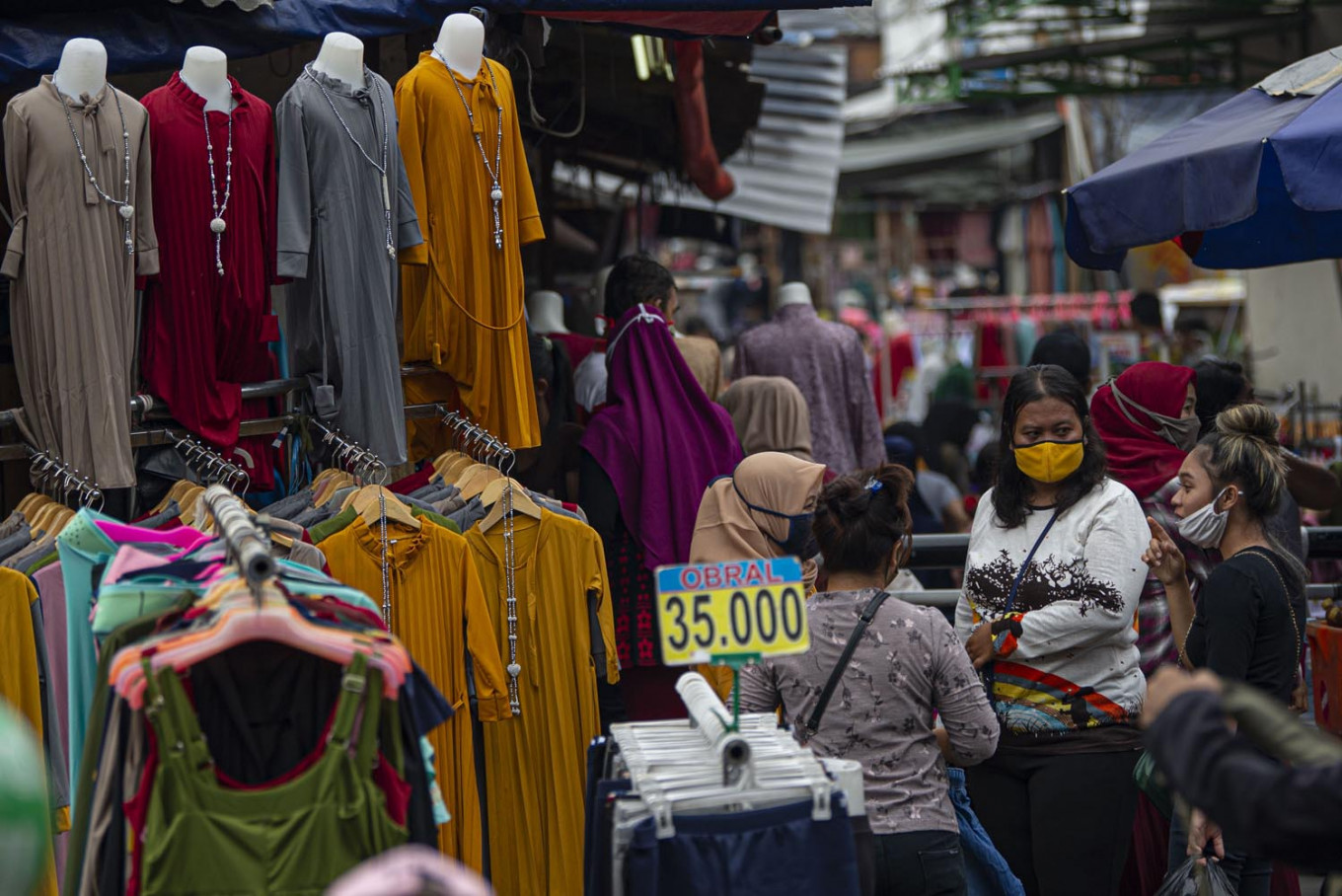Popular Reads
Top Results
Can't find what you're looking for?
View all search resultsPopular Reads
Top Results
Can't find what you're looking for?
View all search resultsJakarta can ease PSBB if low COVID-19 transmission rate maintained: Bappenas
Bappenas claims the basic transmission rate, or R0, for COVID-19 in Jakarta has fallen below one. Epidemiologists believe the outbreak will eventually die out if the R0 remains smaller than one.
Change text size
Gift Premium Articles
to Anyone
 Jakarta residents shop for clothes as vendors open their stalls on Jl. Jati Baru II in Tanah Abang, Central Jakarta, on Monday, May 18. Some vendors set up shop on the side of the street after authorities closed Tanah Abang Market in compliance with the large-scale social restrictions (PSBB) imposed to curb the spread of COVID-19. (Antara/Aditya Pradana Putra)
Jakarta residents shop for clothes as vendors open their stalls on Jl. Jati Baru II in Tanah Abang, Central Jakarta, on Monday, May 18. Some vendors set up shop on the side of the street after authorities closed Tanah Abang Market in compliance with the large-scale social restrictions (PSBB) imposed to curb the spread of COVID-19. (Antara/Aditya Pradana Putra)
J
akarta can ease its large-scale social restrictions (PSBB) and resume normal activities only if it maintains its current low basic reproductive number for the SARS-CoV-2 virus over a two-week period, according to the National Development Planning Agency (Bappenas).
The basic reproductive number, also known as R0, refers to the number of people who can catch COVID-19 from a single infected person in a population.
Epidemiologists believe the outbreak will eventually die out if the R0 remains smaller than one – a point reached by Jakarta on May 19, as claimed by the Bappenas.
"Jakarta has to maintain the condition for 14 days, starting from May 19, in order to ease the physical distancing measures and allow people to be productive again," Bappenas head Suharso Monoarfa said during a teleconference on Thursday.
Read also: Transmission won't stop unless 80 percent of Jakartans stay at home: Epidemiologists
He asserted that the implementation of strict health protocols, such as wearing masks and maintaining physical distance, would continue while the restrictions were relaxed, in what he called the "new normal", as people had to adapt to the fact that COVID-19 would not disappear completely any time soon.
Apart from having a low R0, a region should also have sufficient medical facilities and testing capacity before deciding to ease social restrictions.
Suharso claimed the capital already had “sufficient beds for COVID-19 patients” and had also tested more than 5,000 people per 1 million population. The claimed testing figure is higher than the standard set by the WHO of 1,000 people per 1 million population.
The ministry revealed Indonesia had a 2.5 R0 nationwide and had only managed to test 743 people per 1 million population as of May 19. The government has targeted to increase testing capacity to 1,838 tests per 1 million population by June 19 by conducting 10,000 tests daily.
Read also: COVID-19: Jakarta extends PSBB until June 4 as Jokowi seeks to ease restrictions
WHO representative for Indonesia, Navaratnasamy Paranietharan, said Indonesia should increase its testing capacity to make its data on the transmission rate more reliable before the government moved to relax social restrictions.
Among the ways to bring down and maintain the R0 below one for a long period time is to "maintain social distancing and [implement] health protocols," said Paranietharan.









